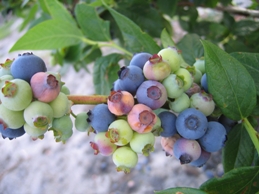Integrated Pest Management
go.ncsu.edu/readext?183827
en Español / em Português
El inglés es el idioma de control de esta página. En la medida en que haya algún conflicto entre la traducción al inglés y la traducción, el inglés prevalece.
Al hacer clic en el enlace de traducción se activa un servicio de traducción gratuito para convertir la página al español. Al igual que con cualquier traducción por Internet, la conversión no es sensible al contexto y puede que no traduzca el texto en su significado original. NC State Extension no garantiza la exactitud del texto traducido. Por favor, tenga en cuenta que algunas aplicaciones y/o servicios pueden no funcionar como se espera cuando se traducen.
Português
Inglês é o idioma de controle desta página. Na medida que haja algum conflito entre o texto original em Inglês e a tradução, o Inglês prevalece.
Ao clicar no link de tradução, um serviço gratuito de tradução será ativado para converter a página para o Português. Como em qualquer tradução pela internet, a conversão não é sensivel ao contexto e pode não ocorrer a tradução para o significado orginal. O serviço de Extensão da Carolina do Norte (NC State Extension) não garante a exatidão do texto traduzido. Por favor, observe que algumas funções ou serviços podem não funcionar como esperado após a tradução.
English
English is the controlling language of this page. To the extent there is any conflict between the English text and the translation, English controls.
Clicking on the translation link activates a free translation service to convert the page to Spanish. As with any Internet translation, the conversion is not context-sensitive and may not translate the text to its original meaning. NC State Extension does not guarantee the accuracy of the translated text. Please note that some applications and/or services may not function as expected when translated.
Collapse ▲Integrated Pest Management, or IPM, is the coordinated use of pest and environmental information along with available pest control methods, including cultural, biological, genetic and chemical methods, to prevent unacceptable levels of pest damage by the most economical means and with the least possible hazard to people, property and the environment.
Blueberry insect pests can reduce yield and quality. See this information on their biology and management.
Blueberry pollinators: Blueberries are a pollination dependent crop. Learn about key pollinator species and their management.
Small Fruit, Specialty Crop, and Tobacco IPM This blog is maintained by N.C. State entomologist, Hannah Burrack. It includes coverage of IPM issues that affect blueberry growers and pest management decisions.
North Carolina Agricultural Chemicals Manual This manual provides growers, Extension personnel, researchers and other agricultural professionals with the most up-to-date information available on the selection, application, and safe and proper use of agricultural chemicals. The online version is updated as changes in recommendations occur throughout the year.
Blueberry Disease and Insect Management for Organic Growers in North Carolina This guide identifies the pest and disease pressures at various times during blueberry production and suggests appropriate control methods for organic producers.
The Southern Region Small Fruit Consortium annually updates its Blueberry IPM Guide. This comprehensive guide details management recommendations for diseases, insects, and weeds.
Blueberry Facts: Information for Scouting and Diagnosing Disease Problems Also available as a pocket guide from Michigan State, these online fact sheets were co-authored by Bill Cline, N.C. State University plant pathologist, and include many photos from North Carolina.
Plant Disease and Insect Clinic The Plant Disease and Insect Clinic at N.C. State University provides disease diagnostic and insect identification services to help growers produce healthy plants and crops. Extension specialists from Plant Pathology, Entomology, Horticultural Science, Crop Science and Soil Science diagnose problems on the samples received.
North Carolina Pest Management Information Program The program serves as an information resource on current agricultural pest management practices, problems and issues relevant to North Carolina. Timely, science-based pest management and pesticide information is available.



